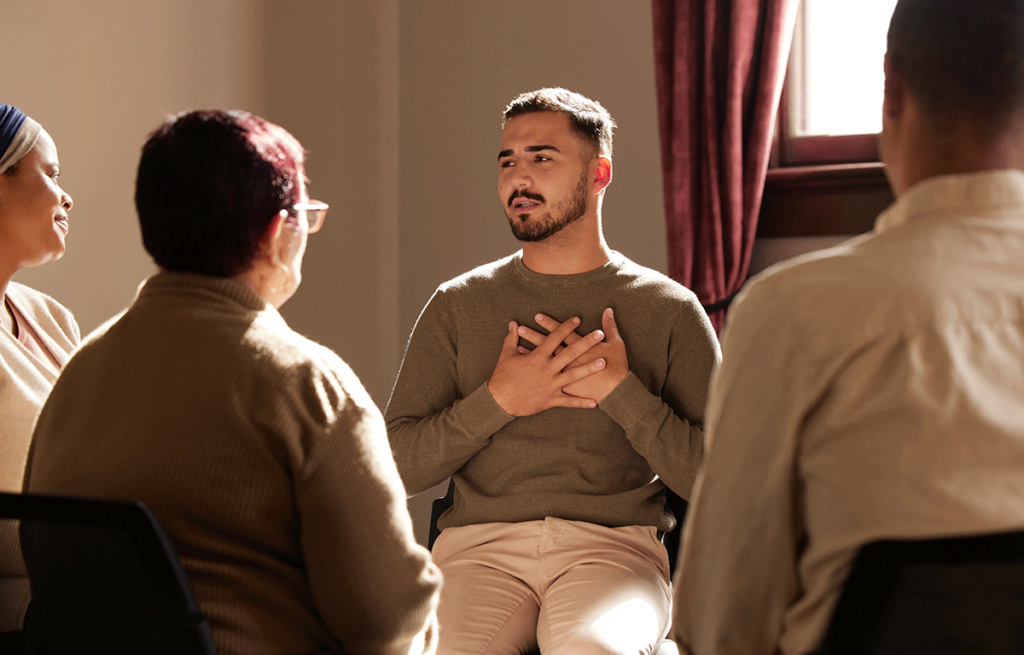Addiction is a chronic condition that can impact every aspect of your life. That’s why addiction recovery requires comprehensive, long-term care that includes different types of therapy, medication, and support systems. While one-on-one counseling can be an essential part of addiction treatment, group therapy can offer several unique benefits that can help you stay focused, motivated, and accountable during your recovery journey. Every type of group therapy offers different benefits, from cognitive restructuring to peer support.
If you’re ready to begin your journey to recovery, the team at Athens Recovery can help you find a group therapy that works for your individual needs. Contact us at 844.959.4998 or reach out online today to get started on your journey to recovery.
How Group Therapy Supports Recovery
Group therapy is a type of counseling that involves multiple people working with a licensed therapist or counselor. It can be a powerful tool to support addiction recovery because it offers a safe, supportive environment where people can learn from each other’s experiences, share their struggles and successes, and find common ground. Different types of group therapy can help clients develop new coping skills, improve communication, and build a sense of belonging and community. By participating in group therapy, clients can tackle the underlying issues that led to their addiction, explore their attitudes, beliefs, and behaviors, and develop healthy ways to manage cravings, triggers, and stress.
Three of the Most Common Types of Group Therapy
1. Cognitive-Behavioral Therapy Groups
Cognitive-behavioral therapy (CBT) is a goal-oriented, evidence-based therapy that can help clients identify the negative patterns of thinking and behavior that contribute to their addiction. In a CBT group, each participant learns to challenge their distorted thoughts, develop positive coping skills, and replace negative behaviors with healthier ones. The sessions are structured and focused on specific skills and techniques, such as:
- Problem-solving
- Stress management
- Relapse prevention
CBT groups can be particularly helpful for those who struggle with anxiety, depression, and trauma-related disorders.
2. 12-Step Groups
12-step groups, such as Alcoholics Anonymous (AA) and Narcotics Anonymous (NA), are non-professional mutual support groups that follow a set of guiding principles and a 12-step program of recovery. In a 12-step group, each participant shares their personal story of addiction and recovery, receives support and encouragement from peers, and works through the 12 steps with the help of a sponsor. 12-step groups can be a valuable resource for those who value spirituality and community support and who feel comfortable with the 12-step approach.
3. Process Groups
Process groups are unstructured, open-ended groups that allow participants to explore their emotions, relationships, and beliefs in a safe and confidential environment. The focus of a process group is on the here-and-now experiences, as opposed to the past or the future. In a process group, each person has the freedom to express themselves in their own way and to receive feedback, validation, and empathy from others. Process groups can be a great fit for those who want to explore their inner world, improve their self-awareness, and practice authentic communication.
Contact Athens Recovery Today to Get Started
At Athens Recovery, we offer a variety of evidence-based therapies, including group therapy, to support our clients’ addiction recovery. Our licensed therapists and counselors are trained to provide compassionate, individualized care that meets each client’s unique needs and preferences. Whether you need one-on-one counseling, medication management, or group therapy, we have the expertise and the resources to help you achieve lasting recovery. Contact us today to learn more about our addiction treatment programs and to schedule a free consultation.
Just call 844.959.4998 or connect with us online to begin your journey to recovery.

